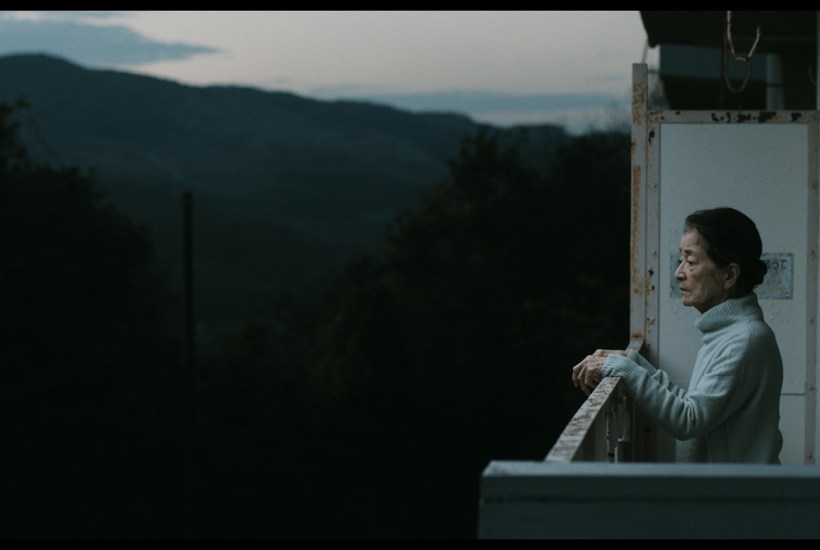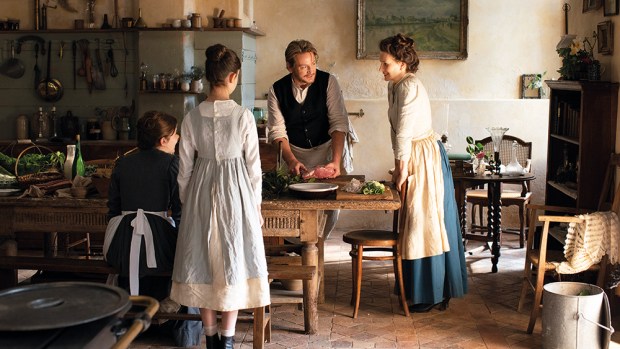Plan 75 is a dystopian Japanese drama about a government-sponsored euthanasia programme introduced to address Japan’s ageing society. Aged 75 or over? Agree to die and we’ll give you $1,000 to spend as you like in your last days! With a collective funeral thrown in for free! Actually, it’s not sold aggressively like that, as this is an understated film. But, despite the hopeful ending, it is so sad and bleak that if you didn’t feel minded to take $1,000 before, you may feel like taking it afterwards. You could spend it on a spa break and a deluxe sushi platter, which is one of the options, if that takes your fancy.
The film is written and directed by Chie Hayakawa who was inspired – is that the right word? – by a mass killing in Japan in 2016 when a 26-year-old man broke into a care home, killed 19 residents, and injured a further 26, on the grounds that such people are a drain on society. (The worst crime in Japan’s modern history, apparently.) We’ve always been led to believe that Asian communities look after and respect their old and maybe that was true once. But Japan is now the most rapidly ageing industrial society – 30 per cent of the population are 65 or older – and a dwindling army of younger people are expected to support them. The film doesn’t offer any solutions. It’s all premise, you could say, rather than argument, and on paper Plan 75 might sound just the ticket. But where might it lead to? Will Plan 75 become Plan 65? Might a culture destroy its own soul?
It’s set in the future but it’s not a futuristic future. There are no special effects or ray guns or monorails whizzing above cities. There is no ‘Carousel’ which will vaporise you at a certain age (Logan’s Run) or ‘thanatorium’ where assisted suicides are turned into food (Soylent Green). It’s not that kind of sci-fi. Instead, Japan looks like Japan today, which makes it feel as though things are happening right now, this minute. It is cleverly chilling in that way.
As the film opens, a news bulletin on the radio is acquainting us with Plan 75: ‘The surplus of seniors is draining Japan’s economy… we have a long proud history of sacrificing ourselves to serve our country…’ And so on. Our main character is Michi (Chieko Baisho), who is 78, works as a chambermaid in a hotel and lives alone in the small apartment where she eats her solitary meals. When she loses her job and is turfed out of her apartment, she makes her way to the Plan 75 offices and an appointment with young salesman, Hiromu (Hayato Isomura). There is no coercion involved. Everyone at Plan 75 is polite and helpful and friendly. Hiromu is polite and helpful and friendly until his next appointment turns out to be his own uncle, which leads him to have second thoughts.
There is one other main character, Maria (Stefanie Arianne), a Filipino woman employed by Plan 75 to remove valuables from participants after they’ve died. Nice work if you can get it. Except it’s not nice at all. The three don’t intersect until the very end.
There is no melodrama. The movie is an exercise in restrained despair. A scene might simply be Michi grocery shopping with her friend or Maria going to her church. The colours are muted and there is minimal camera movement. A matter-of factness infuses everything with a dispassionate coldness, perhaps like Plan 75 itself. Yet Hayakawa also quietly shores up the humanity of her characters, and in this way it is deeply moving. In particular, Baisho gives a wonderfully tender performance as someone who doesn’t want to end it but doesn’t know what to live for either, which we may all have coming. It does end hopefully, and rather gorgeously, but, no, it’s not a cheery film.
Got something to add? Join the discussion and comment below.
Get 10 issues for just $10
Subscribe to The Spectator Australia today for the next 10 magazine issues, plus full online access, for just $10.
You might disagree with half of it, but you’ll enjoy reading all of it. Try your first month for free, then just $2 a week for the remainder of your first year.














Comments
Don't miss out
Join the conversation with other Spectator Australia readers. Subscribe to leave a comment.
SUBSCRIBEAlready a subscriber? Log in